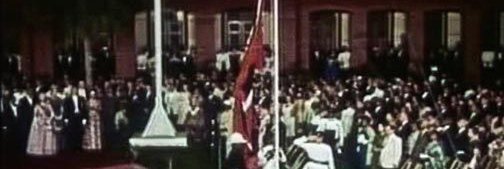On August 31st, 1962 the citizens of Trinidad and Tobago made a bold statement about themselves and to the world. That statement was that, having challenged the status quo of colonialism, we would henceforth take charge of our own affairs and chart of our destiny. Independence Day was the culmination of many decades of struggle starting from slavery. Indeed, the history of Trinidad and Tobago is the history of the struggle of the people “from genocide (of the First People), out of slavery, through indenture and up to freedom”. Some of our national holidays commemorate key milestones in that process: June 19th (Labour Day), August 1st (Emancipation Day); August 31st (Independence Day) and September 24th (Republic Day).
In this process of our fore-parents struggling for freedom they also humanized this space called Trinidad and Tobago, from the barbarism of the extreme exploitation of slavery, then indentureship and early forms of wage labour. They were able to do so because they could imagine a different world from that which they lived; and they possessed a spirit of challenging the status quo: they refused to accept the conditions which degraded their humanity.
One aspect of this struggle was to create decent conditions for life and advancement: shelter; health care; education; workers’ rights. Another aspect was to fight for more and more democracy: the right to vote; the right to self-government and independence; the preservation and deepening of democratic rights such as freedom of association; freedom of worship; freedom of the press; and protection against arbitrary acts by the state and abuse of state power by those in public office. Yet another aspect was the expression and assertion of identity: of the culture and traditions of the ancestors; of an identity that was not defined by the colonial construct; which identity has been manifest in our music, our literature, our food, our art, our theatre, our spiritual and religious traditions. Communities were also established – both geographical communities and communities of interests. In the case of geographical communities these were created out of difficult conditions, oft times where there was no legal entitlement to land and in circumstances where even the most basic of amenities were non-existent, but families and neighbourhoods flourished and grew. Communities of interests led to the forming and building of institutions – friendly societies; trade unions; credit unions; and social, cultural and sporting organisations.
It is this tradition and spirit of the struggle “from genocide (of the First People), out of slavery, through indenture and up to freedom” that the Movement for Social Justice (MSJ) salutes and applauds today on the occasion of the Fifty-Fourth (54) Anniversary of the Independence of Trinidad and Tobago. However, even as we celebrate what we have achieved in the past 54 years and in the decades preceding 1962, we as a society need to hold up a mirror to our face and ask ourselves – is the picture of Trinidad and Tobago that we see one that we’re happy with? For us the MSJ the answer is no! There is no doubt that in virtually every sphere of national life there are major problems, crises even. The manifestations are: • in the economy that has not been transformed from its colonial, plantation structure; • in the institutions of state which are not fundamentally different from the old, colonial state; • in social relations of power which are still defined by the traditional age, gender and class divisions; • in a society that is fragmented by race, religion, geography begun through the colonial strategy of divide and rule.
This situation should tell us that the journey “up to freedom” is far from complete. Indeed, the very process of nation building is still in its early stages. This process of nation building, of realizing the full potential of independence, cannot be advanced by simplistic or symbolic rituals such as wearing red, white and black, as important as this may be. We can only make a leap forward in nation building by adopting the spirit of those who fought for independence and who through their struggles sought to humanize their space. That spirit is to challenge the status quo; to not accept what is wrong and unjust and discriminatory. We must again “Re-Imagine our Future”.
To this end, we in the MSJ have offered a Vision for Trinidad and Tobago – The Second Republic. We say this since we need to complete the Independence Project by transforming the old colonial structures and systems. August 31, 1962 established the basis for real change, for real independence. We must now finish what previous generations started with great vision and courage.



